In life, it is often useful to take a step back and analyze the things that you have experienced. The reflections unit provided me the tools to express myself during such a time through digital and lyrical mediums. On this page you will see some of the products produced out of that reflection. Just as Buddhism was created out of lengthy intense meditation, my products came from a brief time of reflection. The unit taught me the power of reflecting on oneself and I hope this page gives you a brief glance into the power of reflection and learning about oneself.
Mandala
The Mandala unit was a reflection through relaxation. When you relax and just draw without boundaries you learn a lot about your natural essence and who you are when no boundaries are placed on you. This natural essence helped me produce three Mandalas which should theoretically all represent my natural state as a human without any boundaries placed on me.
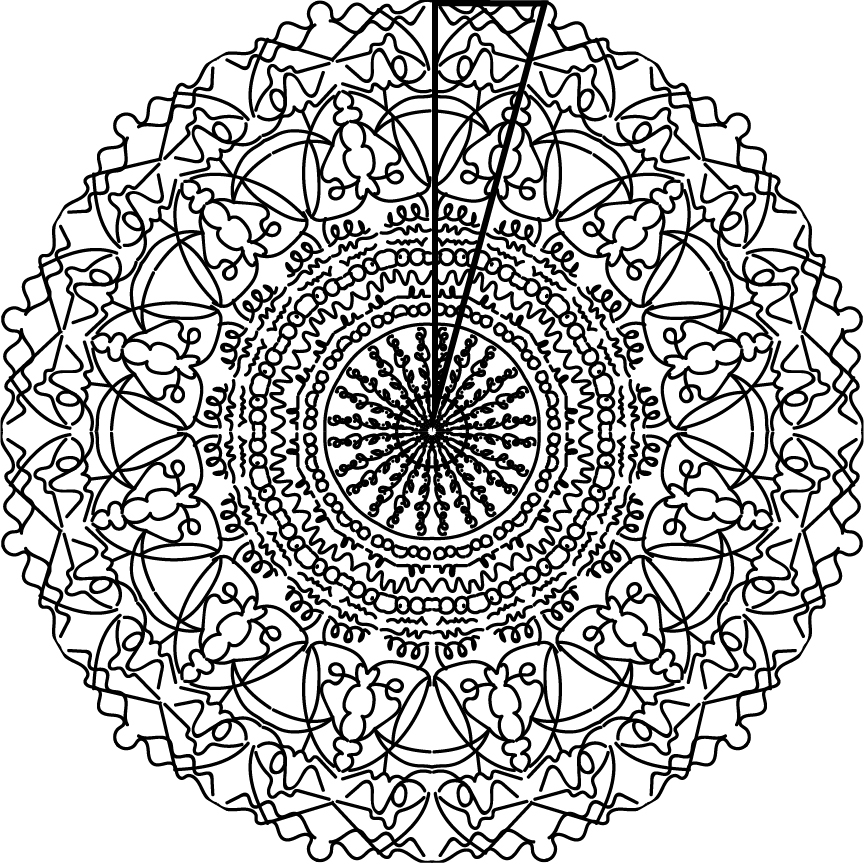
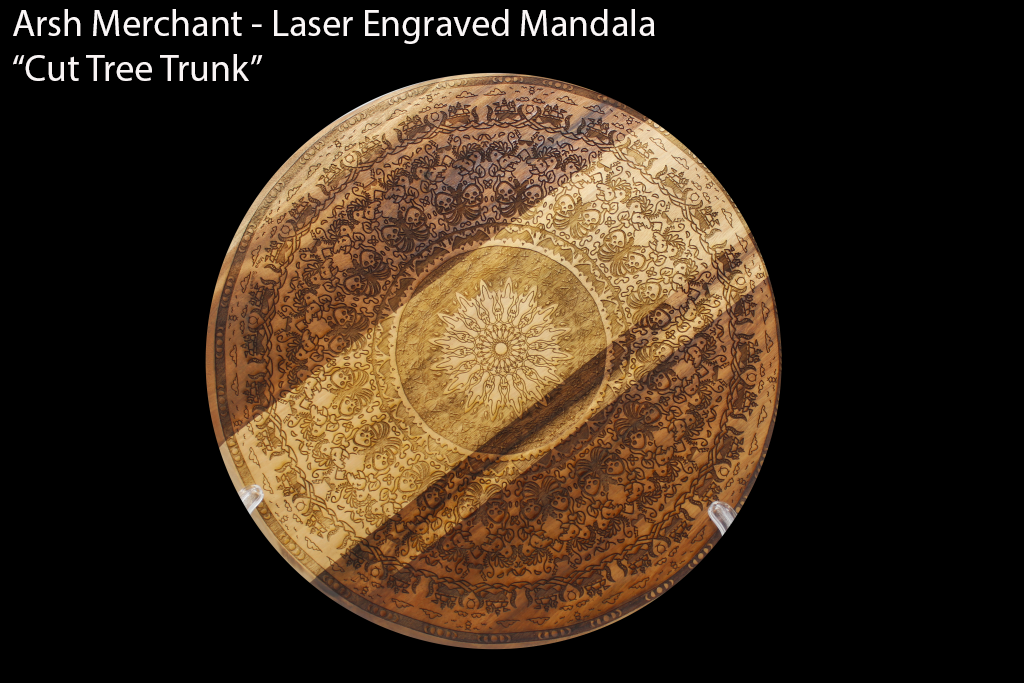
This I Believe
My This I Believe video revealed what I believe due to outside influences on my life. This video shows how my raw personality from the Mandala project combined with the surroundings that I have grown up with have created the opinions and beliefs that I have today.
This video was based on an essay that I wrote in my English class ironically titled the This I Believe Essay. Here is the essay in its raw form.
This I Believe Essay
Change
My life changed during the summer of my freshman year when I met Aidan. Aidan was no ordinary boy, he was extremely creative and he had the greatest heart that I have ever seen. He had so many good qualities and strengths that could have been a direct result of his condition, Autism. The time I spent with him enabled me to truly learn what it means to treat others equitably, which has consistently led me to believe that If we treat others equitably we will no longer have systemic inequality. When most people hear autism they often don’t look at it as a good thing, rather they tend to categorize it as a “stigma” or a sort of disgrace. Society as a whole perpetuates a stigma around factors of life that people can’t control resulting in children like me unknowingly not treating people the way I want to be treated. I once perpetuated these stereotypes and being with Aidan for a week taught me the lesson of acceptance, not just of each other’s disabilities but each other’s communities and cultures throughout the world. I started to realize that if we could accept each other for who we are instead of categorizing each other and judging each other, we would be a much more successful society as a whole. Aidan not only taught me what it truly means to be equal but also what it means to be equitable. He showed me that we all have different needs and that instead of giving everyone the same resources we should be distributing resources such so that we all get exactly what we need. Aidan motivated me not just to change my own actions but to perpetuate change in society so that we are all equitable to each other. From seeing Aidan and talking to him every couple of days all the way to the very morals I have grown up with, change is something I am dedicated to perpetuating in society. Every night, before the age of eleven my mother used to read to me before I went to sleep, every few nights my mother and I would pick a new book to read and the book we read from the previous night would just sit on the shelf, collecting dust. However, there is one book that never seemed to get piled on with dust, my favorite book, The Conference of The Birds by ancient Islamic writer Attar of Nashpur. The story of 30 birds going on a journey to achieve an arbitrary goal which in my world is change. From George Floyd to Jacob Blake all our experiences make one common story of humanity so that one day by all humans being the change we will achieve change. We constantly speak of wanting equality and justice but what are we doing to actually address these issues. Rather than telling others how to change why don’t we change ourselves. If we all change ourselves there will be a mass change in the fronts of equitability. So it is now time to be the change.
Photoshop Art
This is where I continued to express my surroundings through my personal lens. This expression resulted in pieces of digital art through the medium of Photoshop. The first of which is my digital painting.
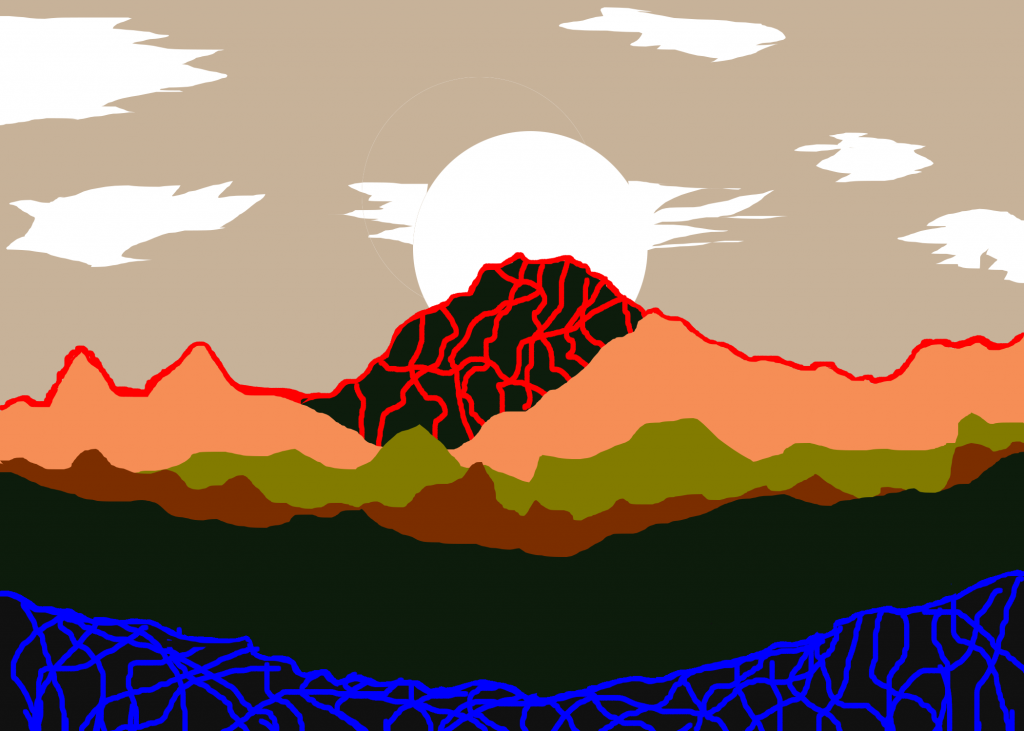
The next thing I created were my watercolor photo conversions in which I depicted images of my family via digital watercolor.
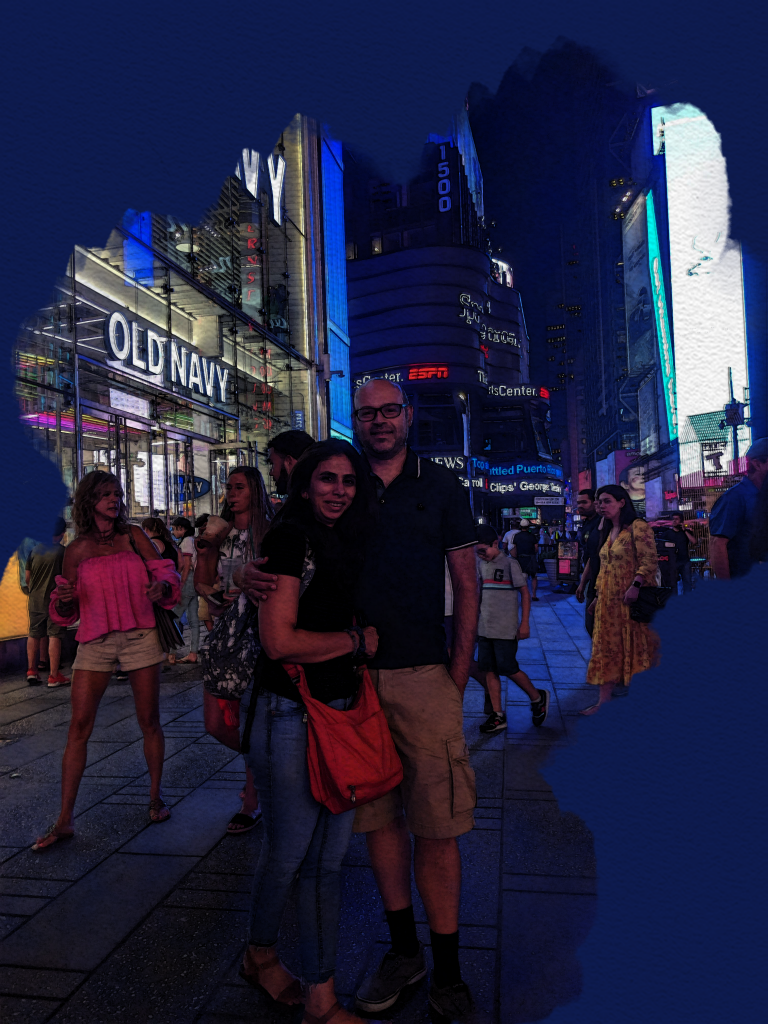
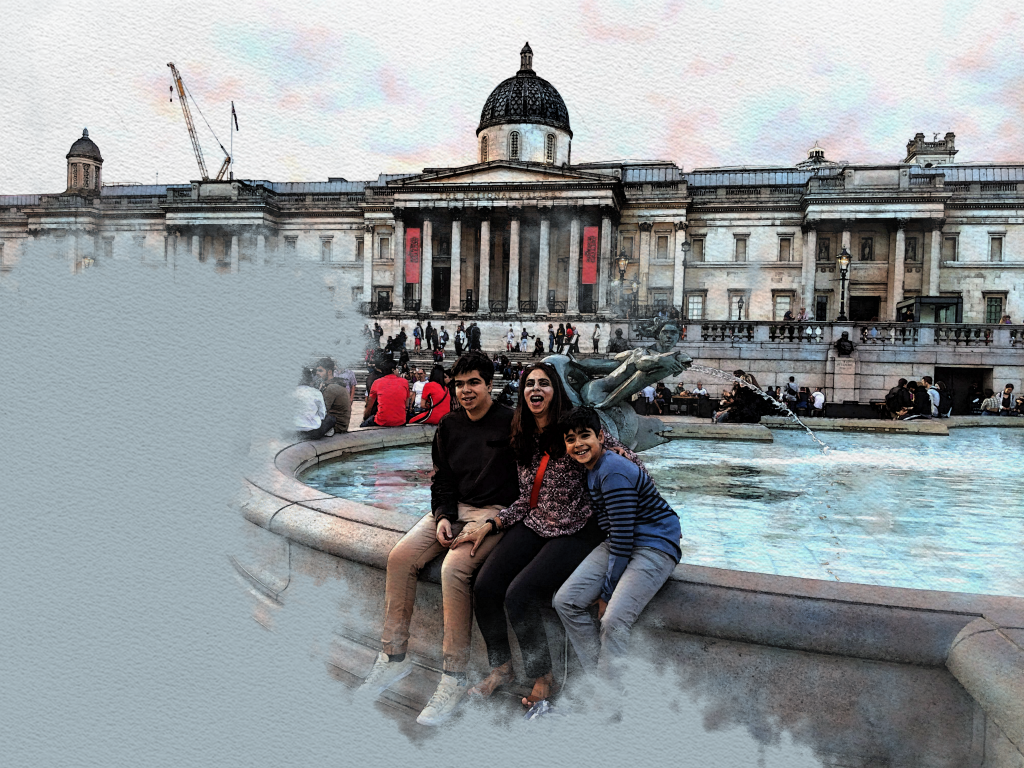

I also made a composition of the statue of David on top of my house for my conversions project.
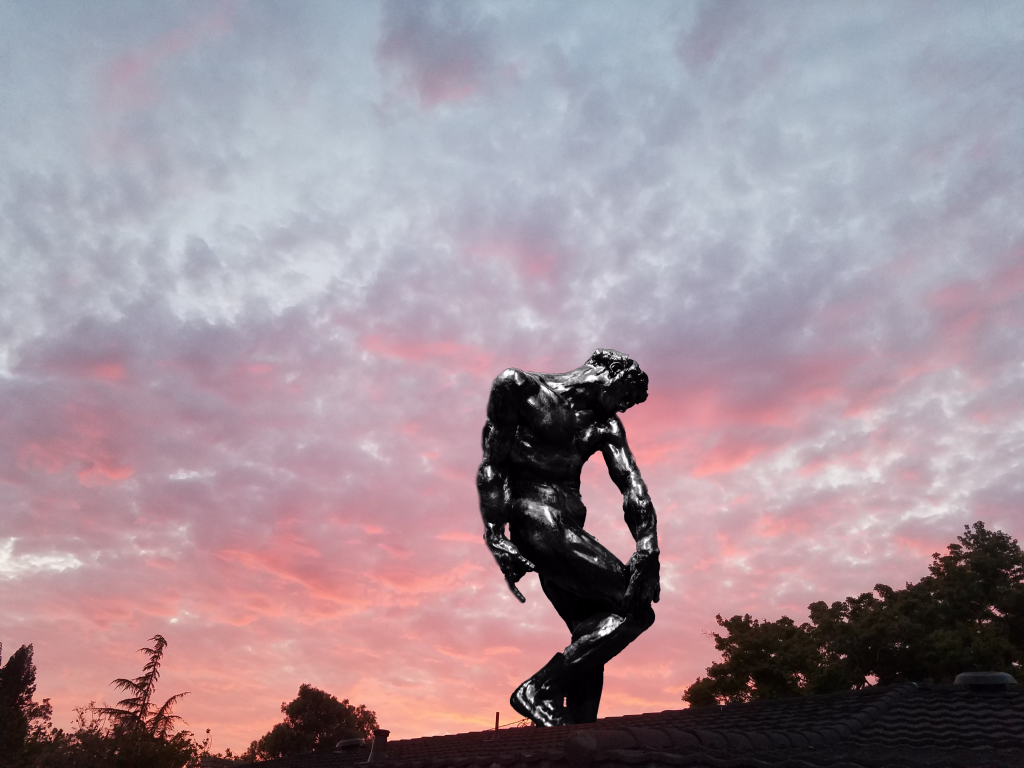
Video Essay
“Who are you?” The ultimate question that is asked throughout this unit, in this video I attempt to answer this question with my least favorite food. I hope you enjoy!
My UCAS Personal Statement(College Essay)
I had already written my Commonapp essay before this English assignment, so I decided to write my UCAS personal statement. I applied for History and Economics and the essay is meant to be academic in nature. I do have all rights to this essay and will be notified if it is plagiarised.
As a child, I admired the idea of Santa. The idea that someone provides presents to everyone, using his limited staff of elves, based on one’s actions and not on their appearance or socioeconomic status, fascinated me. Motivated by Santa I wanted to figure out the best possible way to provide opportunities to others using the world’s limited resources. After taking Principles of Macroeconomics, at a local college, I learned that studying resource distribution will help me fulfill my goal. My December break at Global Encounters Kenya, a selective program for Ismaili Muslim students, allowed me to put economic theories into practice. I understood that society is adversely impacted when the division of resources is based on factors humans cannot control and that applying economic principles can be a solution. A degree in history and economics will help me further understand the stories of the past while developing an in-depth knowledge of unbiased resource distribution to maximize global opportunity.
My studies inside and outside the classroom have convinced me that we can learn from past events to create an optimal future. In June 2020 I was selected to participate in the University of Pennsylvania’s Wharton Global Youth program. During the program, my group was assigned the Penn Protects project; where we analyzed the COVID economy and pitched a product idea that would succeed in such an economy. Having learned that economists use historical events and the scientific method to create hypotheses, we looked to the past for inspiration. After reading the research paper “Economic Effects of the 1918 Influenza Pandemic Implications for a Modern-day Pandemic” by Thomas A. Garrett, we concluded that to create a successful product we should pitch an idea that didn’t require human-to-human interaction or the exchange of physical objects. We proposed, LoCOVID, an app that detects localized COVID hot zones and suggests safe places during the pandemic. Placing 3rd in the world for our product idea reaffirmed my belief that an understanding of historical events is necessary for becoming a better economist.
While researching cases of equitable access to opportunities, I read the story of Srinivasa Ramanujan, a product of opportunity given to someone with little opportunity in life. His mathematical genius was discovered by GH Hardy due to Ramanujan’s perseverance and more importantly a series of chances, instead of a system designed to surface such talent. His story inspired me to think about a new economic system that would incentivize the “GH Hardys” of the world to identify and groom the “Ramanujans”. This could allow hidden talents to be discovered more frequently and surface innovative ideas that would be the engine for sustainable economic growth. I am keen to dive into more historical examples and use them as inspiration during university to push the thinking on new economic theories and systems.
As I learned during my United States History class, large-scale shifts in economic systems are possible and driven by many catalysts. One such catalyst in America’s transition from an agrarian economy to a post-industrial, service-oriented powerhouse was the creation of free markets, which was a product of setting up and communicating powerful economic incentives. This power of communicating incentives motivated me to learn the art of storytelling through digital media at Freestyle Academy, a communication and arts program at my school. At Freestyle, I read “Freakonomics” by Steven Levitt and Stephen Dubner as an example of how one can express complex ideas in a relatable manner. I used this when creating a short film educating my peers on the “Economics of Hollywood”.
Over the past four years, I have gotten a small taste of the world of economics and frankly, I can’t get enough. Studying in the UK with its incredible history, global outlook, and focused academics will greatly facilitate my quest to become the best economist I can be.